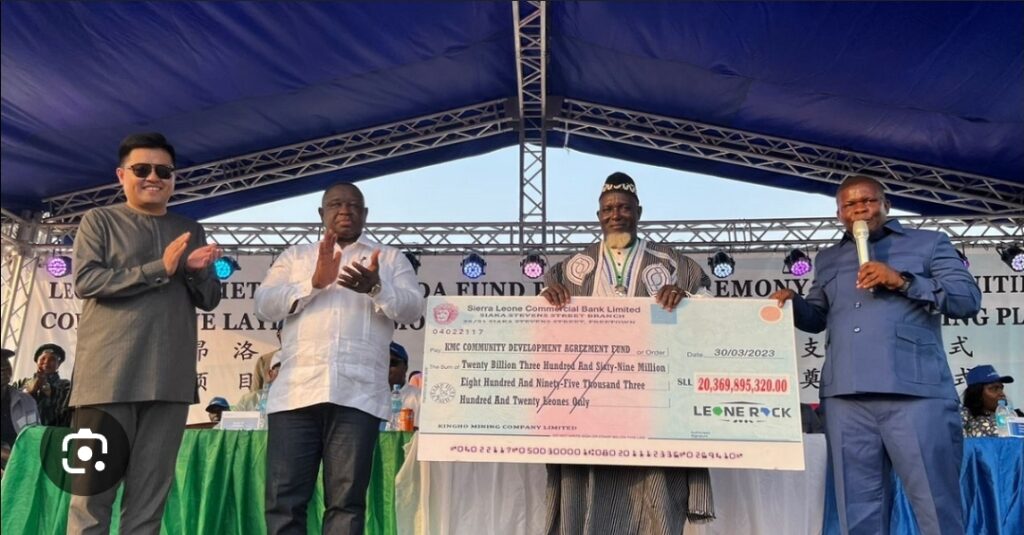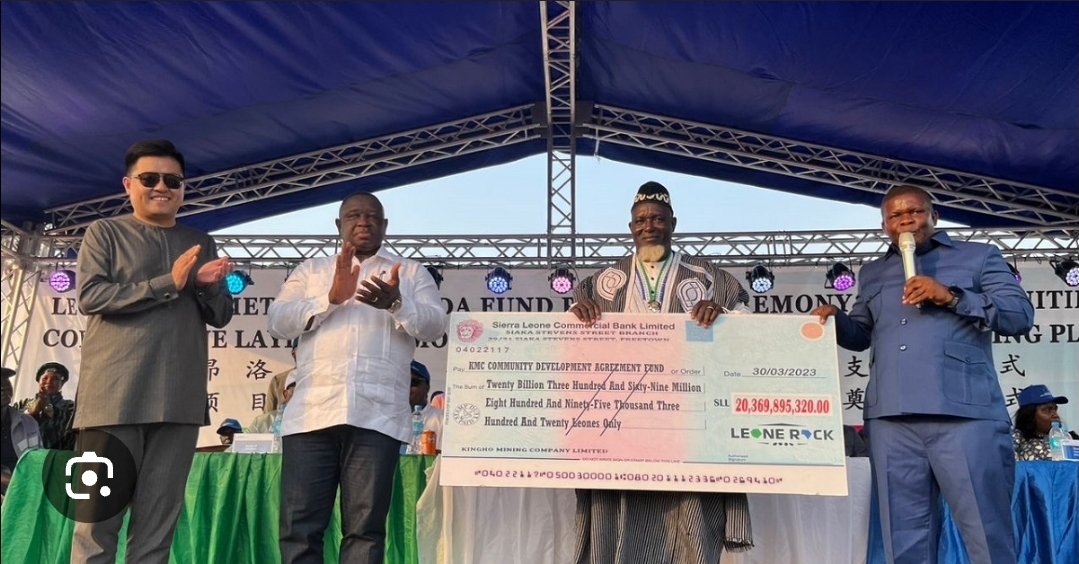
WHY LEONE ROCK CAN’T BE TRUSTED
By Ibrahim Alusine Kamara (Kamalo)
In the mining communities of Sierra Leone, the term “restructuring” often carries a heavy weight—it usually signals loss. Loss of jobs, loss of livelihoods, and sometimes, a loss of dignity. While corporate shake-ups are a regular occurrence in industries worldwide, here in Sierra Leone, they often feel like a betrayal.
So, it’s no wonder that whispers of change at Leone Rock Metal Group (LRMG)—whether they’re based in fact or blown out of proportion—have sparked fear, suspicion, and painful memories for countless workers. Throughout the country, mining companies have left a trail of broken promises and abandoned workers. Whenever ownership shifts or management hires outside firms for human resources or logistics, it’s the employees at the bottom who bear the brunt of the fallout.
Koidu Limited: A Grim Reminder Consider Koidu Limited, a diamond mining operation in the eastern Kono District. Just recently, nearly 1,000 workers were let go under the guise of “corporate restructuring” and a “reassessment of operational priorities.” This was a crushing blow—not just for the employees, but for an entire district where mining is the heartbeat of the local economy. Many of those affected reported receiving little to no compensation, and community leaders expressed frustration over not being consulted or informed beforehand. > “We were just told to stop coming to work. That was it,” one former employee lamented. “After years of hard work, they treated us like we were invisible.” The tale of Koidu is far from isolated. From Marampa Mines in Port Loko to Sierra Rutile in Moyamba, restructuring has become a euphemism for layoffs, outsourcing, and the gradual erosion of labor protections. The Labour Ministry, often underfunded and lacking power, struggles to enforce compliance or even keep tabs on these transitions in real time. More often than not, by the time authorities step in, the damage has already been done.
Outsourcing: A Double-Edged Sword At the center of the ongoing debate is LRMG’s choice to hire Rock Wave, a Sierra Leonean HR firm, to oversee junior staff. While the company claims this is a strategic effort to “professionalise HR delivery” and “empower local firms,” many employees view it as a way to dodge responsibility. > “We don’t even know who we’ll be reporting to anymore,” one worker expressed. “If they pass us off to a third-party firm, what happens to our benefits? Our union rights? Our job security?” And honestly, that’s a valid concern. Often, when HR or logistics roles are outsourced, employees find themselves as contract workers for the new company, typically facing lower pay, fewer benefits, and a loss of bargaining power. On top of that, outsourcing creates a murky legal situation, allowing companies to sidestep direct accountability for labor violations or disputes. This tactic is used worldwide—but in Sierra Leone, where regulatory oversight is lacking, it turns into a means of exploitation. Communities Also Feel the Pain The fallout from restructuring goes beyond the mine gates. When workers are let go or demoted, local economies take a hit. Small businesses that rely on miners’ incomes—like restaurants, market vendors, and bike taxi drivers—watch their customer base shrink. In towns like Bumbuna, Lunsar, and Koidu, entire communities revolve around mining activities. Any sudden changes send ripples through the area. > “When they laid off workers at Koidu, our market died,” shared a trader from Tankoro Chiefdom. “Even paying school fees became a struggle for many. Some kids had to drop out.” In these regions, mining companies aren’t just employers—they’re the lifeblood of the local economy. So when these companies restructure without any consultation or compensation, the social consequences can be devastating. A Pattern of Secrecy and Evasion What’s particularly concerning about these recurring situations is the lack of transparency surrounding them. Decisions are made behind closed doors, often without any input from those affected.
By the time the public catches wind of what’s going on, contracts have already been inked, names have been swapped out, and ownership structures have been shifted around. Tracing accountability becomes nearly impossible. Workers find themselves at a disadvantage, while the public keeps asking the same frustrating question: How did this happen? “We have laws. We have labor codes. We have environmental policies,” a labor unionist in Freetown pointed out. “But we lack enforcement. And we lack transparency.” This situation has fostered a deep-seated mistrust between workers and foreign mining companies. That’s why any whiff of a change in ownership—like the Rock Wave rumors surrounding LRMG—sparks anxiety, protests, and calls for strikes. Even when companies try to clarify or deny these rumors, the wounds from past betrayals are still raw. For many workers in Sierra Leone, corporate promises don’t hold much weight anymore.
